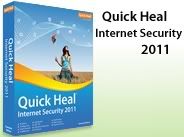Way to avoid online donation scams
Usually Internet is the way to donate or contribute money to our favorite nonprofit organization but in between there is some hidden online scams during the transactions.
How to spot it:
One form of fraud is phishing in which spamming is done by fraudulent spam e-mail messages, online forum posts like unwanted things asks funds in the name of well-known legitimates charities or for victims of disasters. These spams’s pop up while working on Internet and may steal money or personal information by providing links to some phony websites seems to be official.
Avoiding steps:
How to spot it:
One form of fraud is phishing in which spamming is done by fraudulent spam e-mail messages, online forum posts like unwanted things asks funds in the name of well-known legitimates charities or for victims of disasters. These spams’s pop up while working on Internet and may steal money or personal information by providing links to some phony websites seems to be official.
Avoiding steps:
- Use Microsoft Phishing Filter.
- Be with technology and improve security of your computer.
- Directly contact to the well established and known charity agencies that are used before by you or by other trusted person rather than responding to solicitations.
- Ensure the legitimate site certificates and written policy of protecting personal information before providing credit card number or other personal information to any charity related Website.
- Never reveal your personal information or click on any unsolicited e-mail received from any charitable organization asking for money.
- Instead of clicking on e-mail request from charity for donation go to their Website by manually address in browser or simply call them for verification and ask the procedure of contribution.
- Make habit of typing address of organizations during working online.
- Usually spoofed Websites deceive users by using deliberate, easily overlooked misspellings so always double-check the spelling of Websites and be habitual of looking at actual address before further steps while browsing Internet.
- Beware of the photos of disaster victims or areas attached s they may be infected with computer viruses.
- Keep up to date information of online scams from some professional sources, trusted technology news providers or government agencies.
Labels:
Tips 'n' Tricks
Subscribe to:
Post Comments (Atom)
Unlock Windows
Search
Subscribe
Translator
Popular Posts
Blog Archive
- March 2011 (3)
- February 2011 (2)
- January 2011 (4)
- December 2010 (13)
- November 2010 (7)
- October 2010 (7)
- September 2010 (1)
- August 2010 (2)
- July 2010 (3)
- June 2010 (8)
- May 2010 (18)
- April 2010 (12)
- March 2010 (15)
- February 2010 (9)
- January 2010 (15)
- December 2009 (21)
- November 2009 (28)
- October 2009 (35)
- September 2009 (14)
- August 2009 (23)
- July 2009 (19)
- June 2009 (20)
- May 2009 (12)
- April 2009 (18)
- March 2009 (8)
- February 2009 (7)
- January 2009 (14)
- December 2008 (16)
Labels
- Anti Virus
- Apple
- Beta Products
- Bing
- Bugs
- Creativity
- Download Center
- Ebooks
- Events
- Expression
- Games
- Internet Explorer
- Keyboard Shortcuts
- Microsoft Hardware
- Microsoft Office
- Microsoft Research
- News
- Offers
- Review
- Security
- Silverlight
- Software
- SQL Server
- Themes
- Tips 'n' Tricks
- Unsorted
- Visual Studio
- Wallpapers
- Windows 7
- Windows 8
- Windows Live
- Windows Mobile
- Windows Phone
- Windows Server
- Windows Vista
- Windows XP
- Zune
Friends
About Me
- Arvind Kumar
- I'm Arvind Kumar from India, B.Tech, now working in a MNC. I love to use Microsoft Products and learn from that. Bill Gates is my ideal person.






0 comments:
Post a Comment